
What’s going on out on the land?
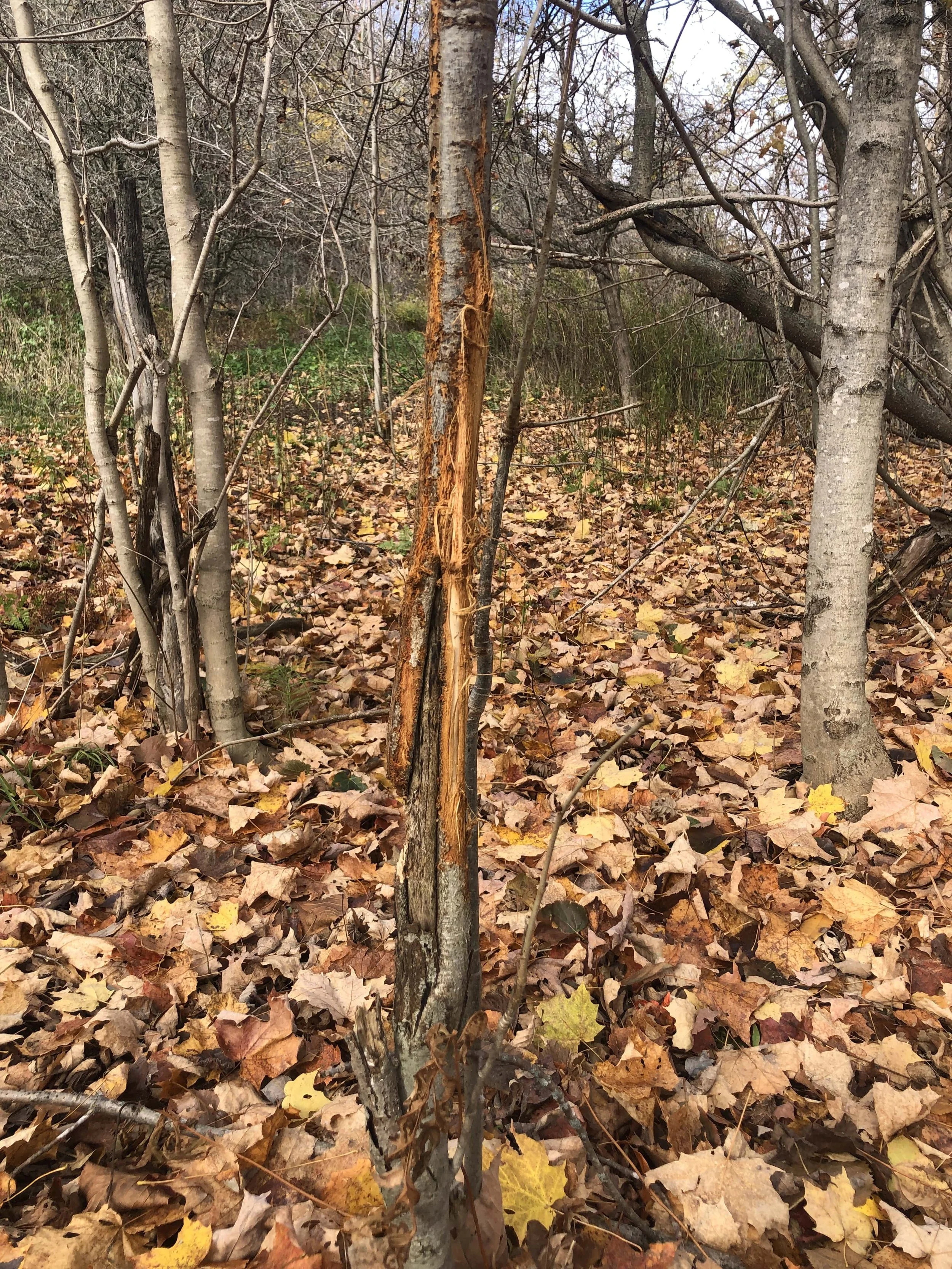
Signs of the White-tailed Deer Rut
While tracking White-tailed Deer at Mono Cliffs with the Earth Tracks apprenticeship, we saw lots of signs of the rut and the subtle ways deer communicate. We studied three main signs: scrapes, rubs and lick branches. Together, these clues form a multisensory language of scent, sight, and even ultraviolet signals that share details of identity, territory, and mating readiness. These clues along the trail are a real insight into how deer express themselves across the landscape in ways most of us overlook.
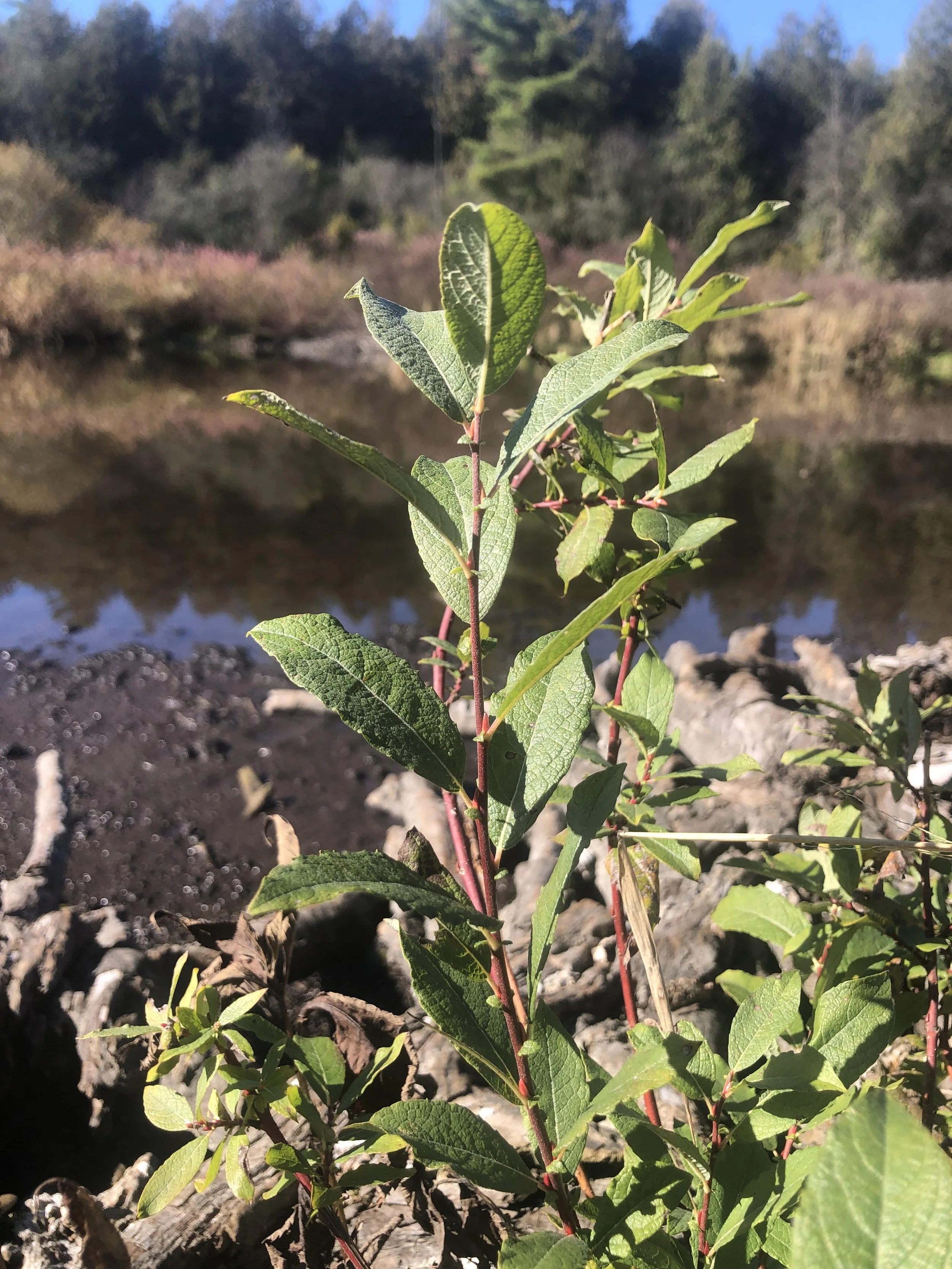
Considering Bebb’s Willow
Bebb’s Willow is a species I encounter commonly, but I do not know much about. I can’t even accurately identify them. They have become the subtle whisper of species ID I feel inside me whenever I cannot identify a small wetland shrub that sorta looks like a Willow. I have decided that I will take a closer look.
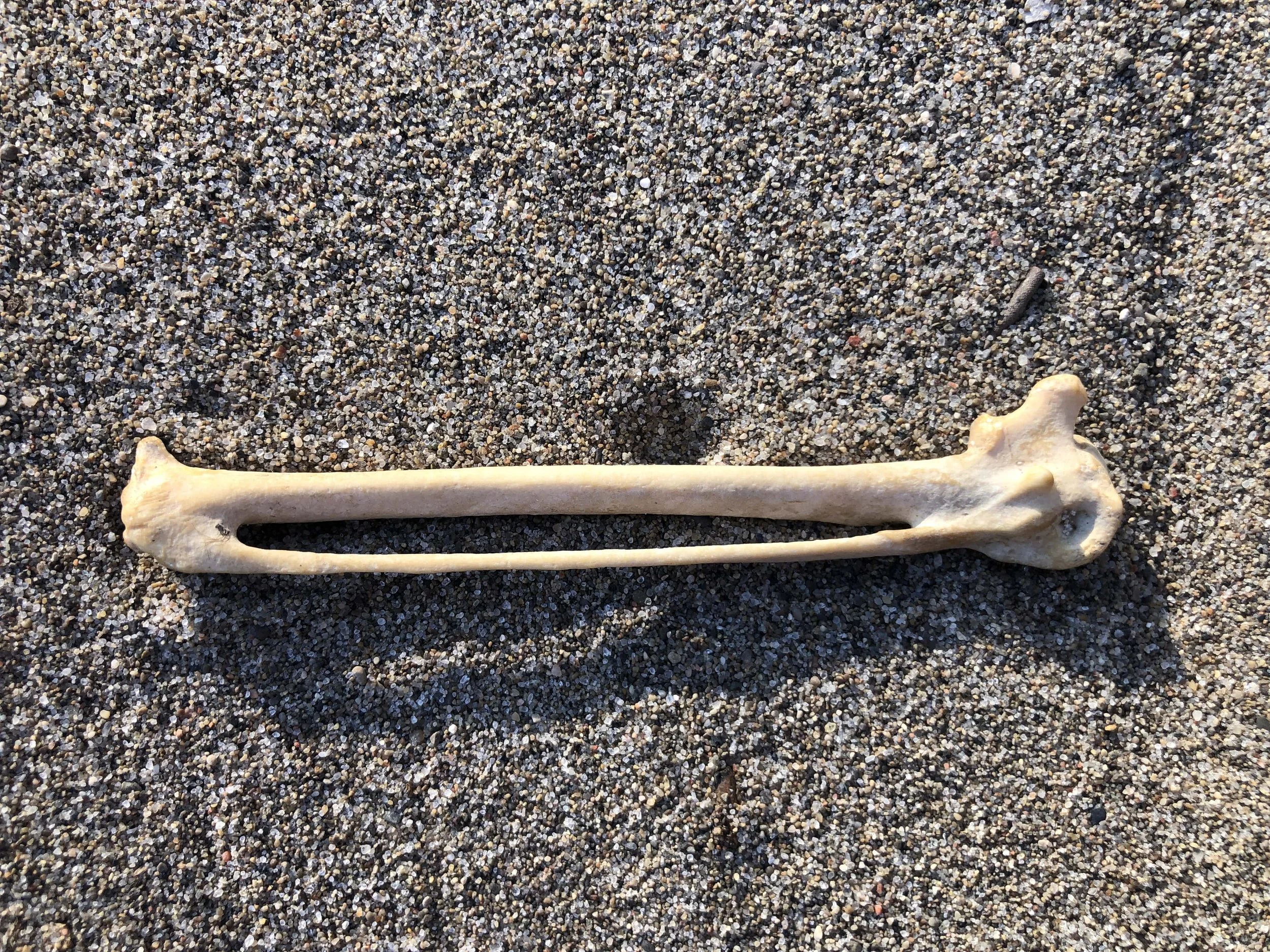
I Found A Carpometacarpus
I went to the beach the other day and I found a bone washed up. The bone struck me right away as looking like it was from a bird. Perhaps I remembered it from a previous bone study or from a skeleton I had observed before. I inspected it quickly, and put it in my pocket to look at a little more later before continuing on my way.
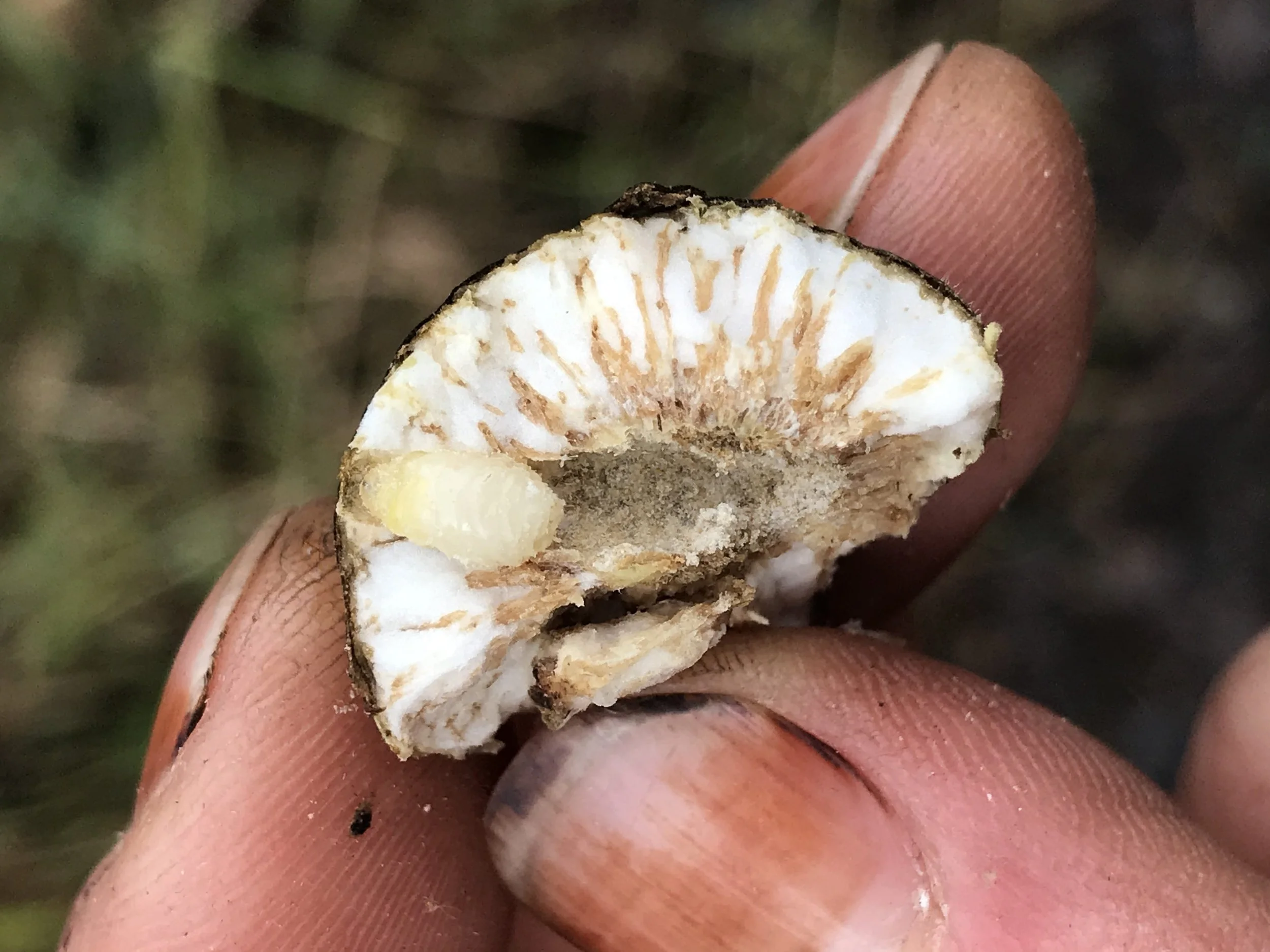
A Short List of Bugs I have Eaten
I am very much interested in the edibility of invertebrates. Recognizing that most of the world commonly consumes insects and other inverts, I get to wondering why we in the Northern parts of Turtle Island/North America don’t really consume them.
In light of this wondering I have been setting out to learn as much as I can about which insects I can eat, and how I can learn to prepare them. Below I will be creating an ever expanding list of insects and other inverts I have eaten and how I have prepared them.

Identifying Skeletal Remains of a Common Loon
While out tracking with the Earth Tracks Widllife Tracking Apprenticeship along a stretch of beach at Lake Huron at Saugeen First Nation we came across the fairly decayed carcass of a medium sized bird...

Early Days In The Lives of White-tailed Deer Fawns
There was a sudden movement directly under where my foot was about to land. Something large and pale brown jostled about and I quickly called out and stumbled back. It took me half a second to realize that the large pale brown shape that was moving away from me was a White-tailed Deer fawn. Reflecting afterwards, I realized that I didn't know much about fawns, so I had to find out more...

Jumping Mouse Tracks vs. Vole Tracks
It seems differentiating between Jumping Mice and Voles in my area is a persistent struggle. I have confused them on study calls and most recently on another TCNA Track and Sign evaluation (earning me 99% instead of 100%). With this latest affront to my pride I decided I needed to work through the tracks with more focus and practice seeing the minute differences of these minuscule tracks.

Determining Direction of Travel on a Fisher Trail
“Which way them critters goin’?”
To this day it can be tricky to tell the direction of travel through deep snow.
For this exploration in determining the direction of travel I’ll use a snowed in Fisher trail we encountered during an Earth Tracks Tracking Apprenticeship outing at Bognor Marsh, near Meaford, Ontario as an example. It was a faint trail, mostly snowed in, but the impressions were visible at the right angles, as long as they hadn’t been blown away in the wind.

Glands on a White-tailed Deer Leg
I found a White-tailed Deer leg while trailing a Coyote. I ended up taking the leg. Why? Well, I thought it would be a good chance to take the leg home to study it and learn more about deer. This post is about my findings, especially in regards to the glands distributed along a deer’s leg.

White-tailed Deer feeding sign at Kinghurst
Recently, at a TCNA “tracker tuesday” call, there was a challenge proposed: on your next tracking outing, practice following the deer or the rabbits and see if you can find 10 plants which they fed on. For me in my area, the deer would be White-tailed Deer and the rabbits would be Eastern Cottontails. While I have been observing the Cottontails loosely at work with my students, for this tracking outing with the Earth Tracks Wildlife Tracking Apprenticeship, we focused on the White-tails.
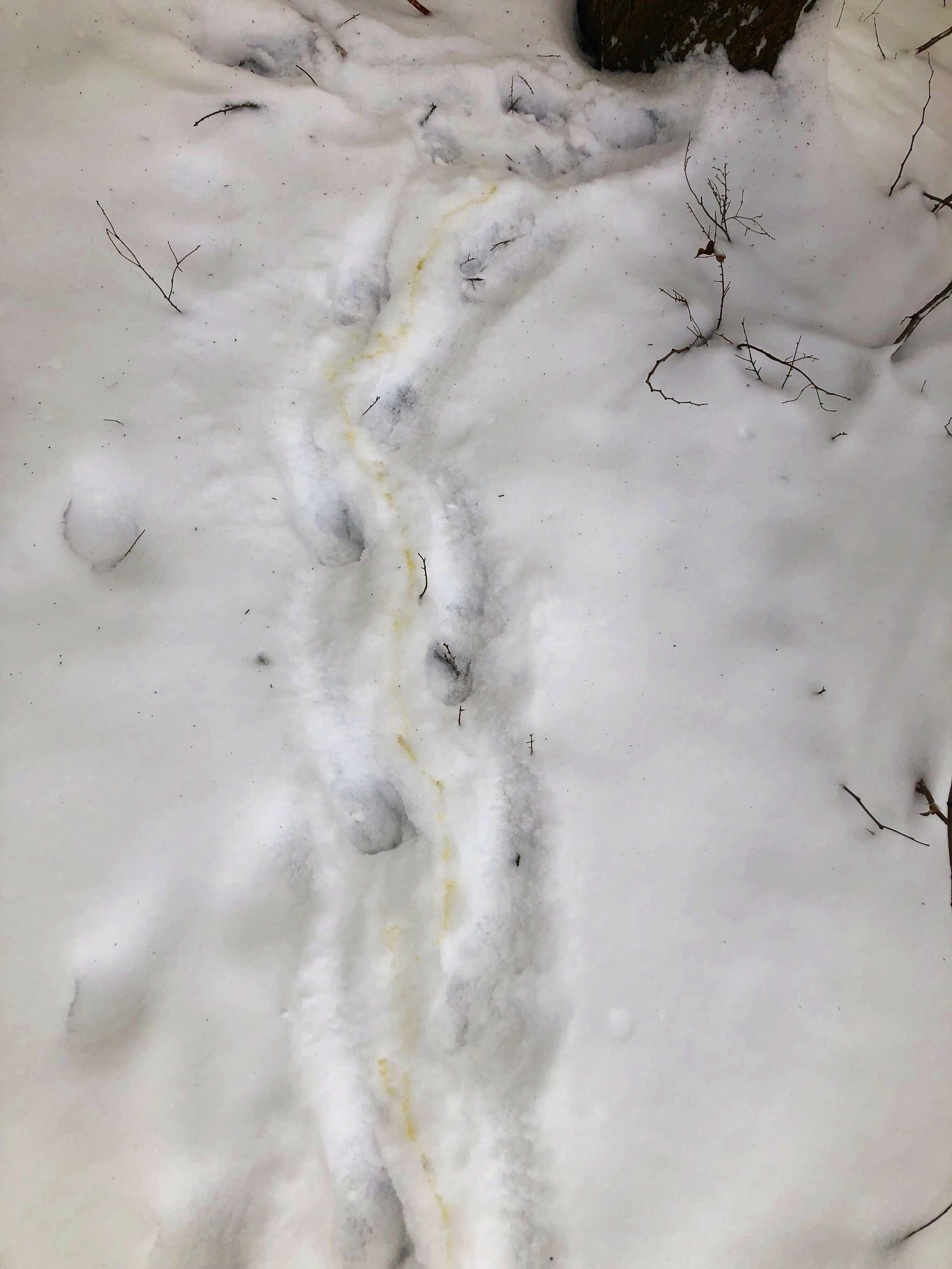
Trailing Porcupine at Dunby rd
I knew who the trail belonged to pretty much right away due to the oscillating midline that ran through the length of the furrowed trough in the snow and the occasional spotting of urine that was sprinkled intermittently along the run. This was the trail of the North American Porcupine, a common fixture in the forests of Dunby rd.
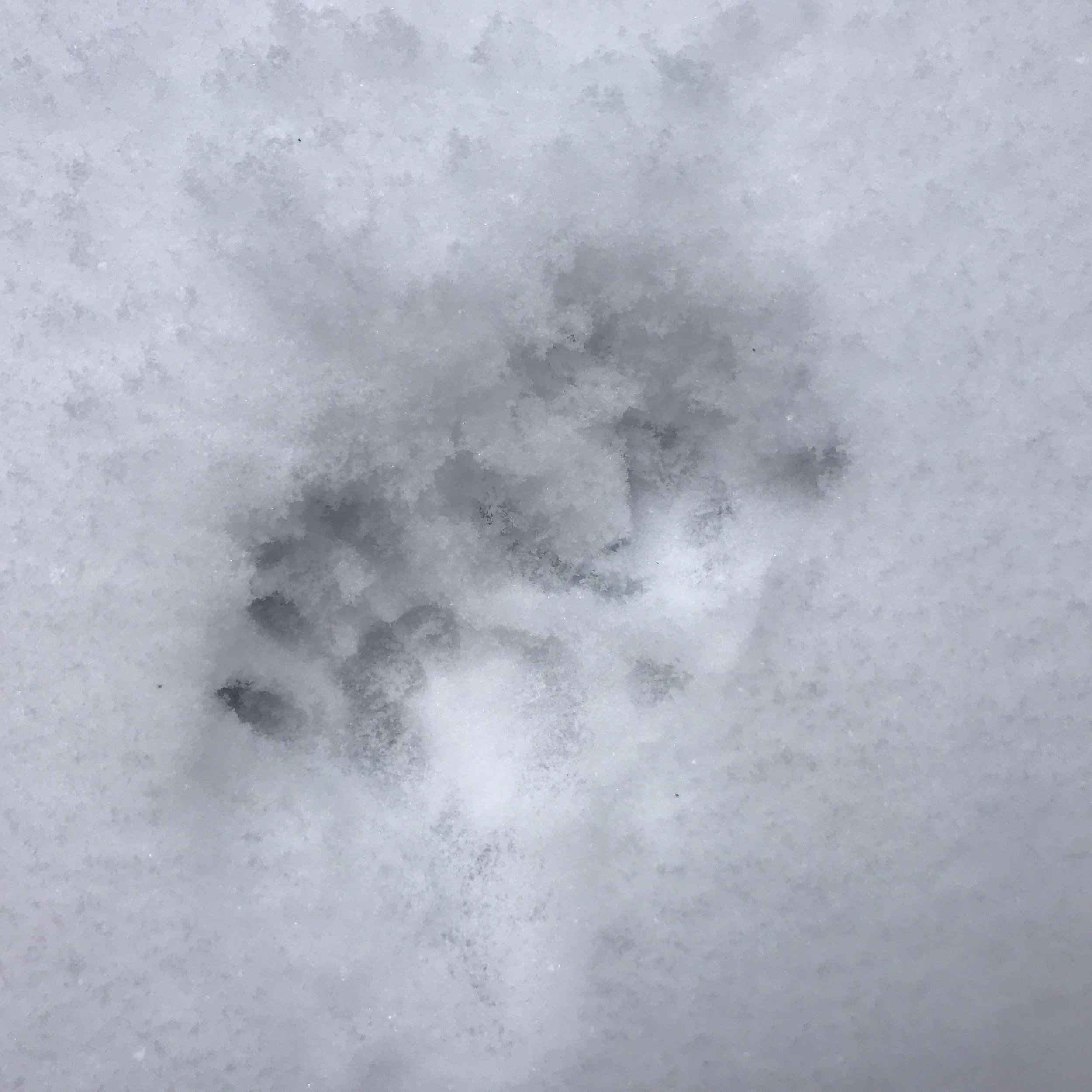
On the Opossum Trail
For the past few years I have been tracking the Scout Camp beside where I work. Lately with the students, we trailed an Opossum around the area.
This time I went back alone in hopes of learning more about the Virginia Opossum and see what they were up to. I wasn’t let down.

Two More Coracoids
I have written about coracoids before, but since realizing they are very helpful in the identification process of birds, it has become a bit of an ongoing puzzle now.
This post is about finding two dead birds and using their coracoids to sort out who they were with a little more certainty.

A Story Of Stones At Old Baldy
I recognize that these are epic cataclysmic histories, but the stories held in the stones at Old Baldy have brought about a deep sense of peace for me when it seems so lacking in the world right now. Maybe it’s the disconnect of me not being present for the upheaval and torrent of glacial meltwaters and crushing sheets of ice, but doing the research, piecing together clues, and imagining the magnitude does create a profound sense of wonder and awe, a stupefying amazement in the unveiling of a billion years of mystery written on the body of the hill. I deeply appreciate the work and practice of listening to the stones and tracking the beauty of the land.

Tracking at Saugeen Shores, 2024.09.28
Another beautiful, exciting and overwhelming trip with the tracking apprenticeship to Saugeen Shores. Bird tracks, invert sign, reptiles, and more met us on the sandy shores of Lake Huron.
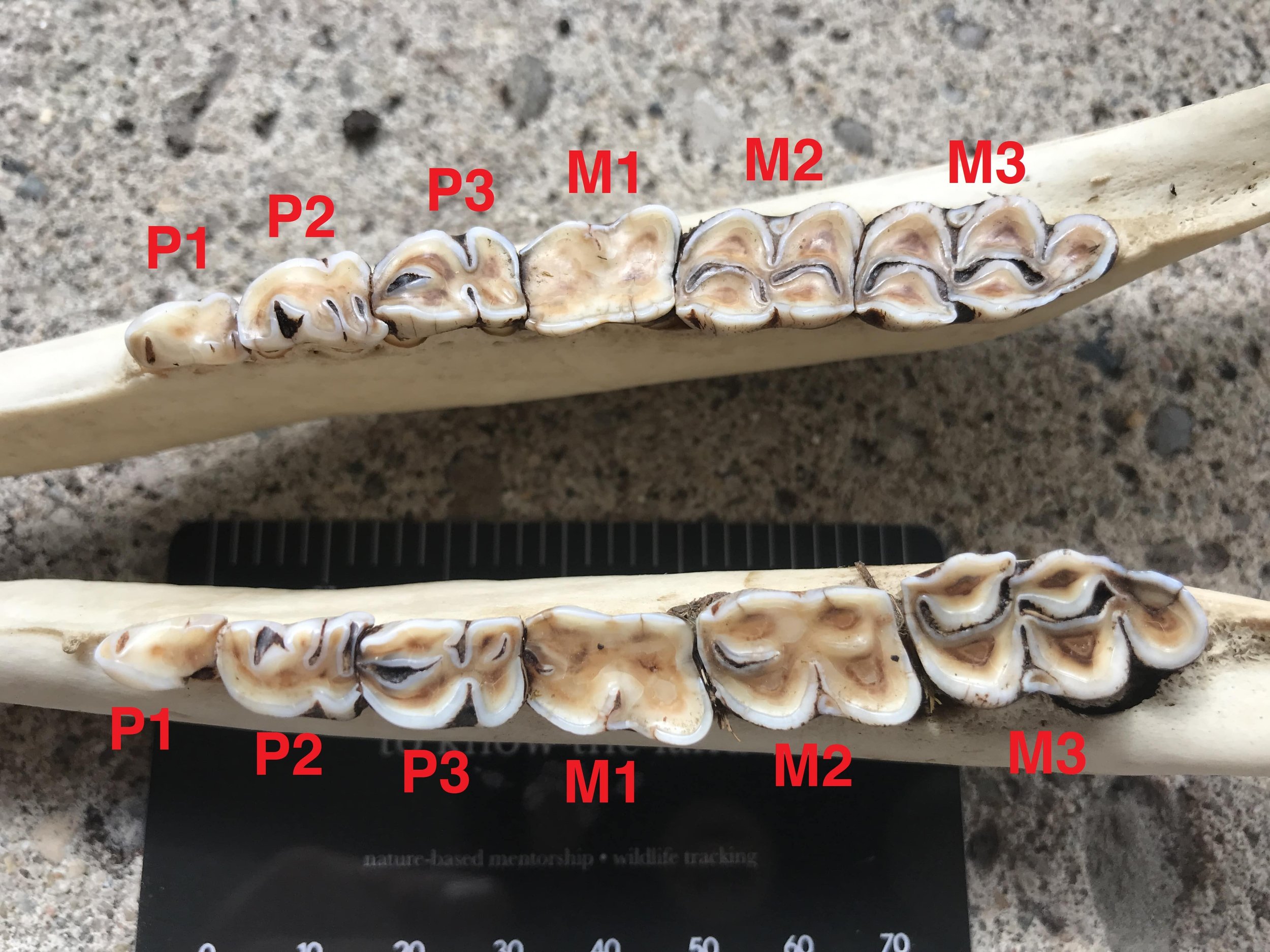
How To Age A White-tailed Deer by Looking At The Teeth pt. 2 : Older Deer
At the end of April I was attending a Track and Sign Evaluation. On the second day of the two day eval we came across a female White-tailed Deer carcass and were asked the question of how old the dead Deer was when she died. We were given three options to choose from based on what we could see. The three options were: A) 1-3 years, B) 4-7 years, or C) 7 and up.
Well, when I got home I started I realized I had a lot more research to do.

Invert Sign at Dunby Rd.
Learning more about invertebrates and the signs they leave behind is such a valuable part of wildlife tracking to me. I feel like when I teach or share about the inverts, most people are kind of “cool, but where are the mammals?” about it, but I hope to keep learning more so that I can inspire some deeper respect and awe about a couple whole other phylums! There is so much life out there, that doesn’t look like us, move like us, eat, excrete, breed or breathe like us and every time I learn something new I get stoked. I am grateful to get to share some of that excitement in this post.

Three Common Silk Moth Cocoons
Throughout the past few years I have come across a few different large cocoons belonging to Silk Moths, who are large moths in the family Saturniidae, in the order Lepidoptera. As I encounter the cocoons I tend to look them up and try to learn something about them but eventually the individual identifications of each unique species is lost, except maybe the Cecropia. I wanted to write a short blog post, starting with the main three cocoons I encounter, helping to remember who makes which cocoons so I can better remember in the field.

Two Coracoid Bones
Last weekend I was in Grey County helping with a mock tracking evaluation. At the beginning of our second day of the mock eval, I found a small bone near the edge of an old plantation. It was short, “hooked” at one end with a sharp chisel like edge at the other end. There appeared to be a couple of points where the bone could articulate (connect) with other bones in whoever’s body this bone belonged to. Along a flat surface of the bone there were small thin ridges which I ran my finger along, over and over as I wondered as to which animal the bone may be from? I knew I would have to look into it more.
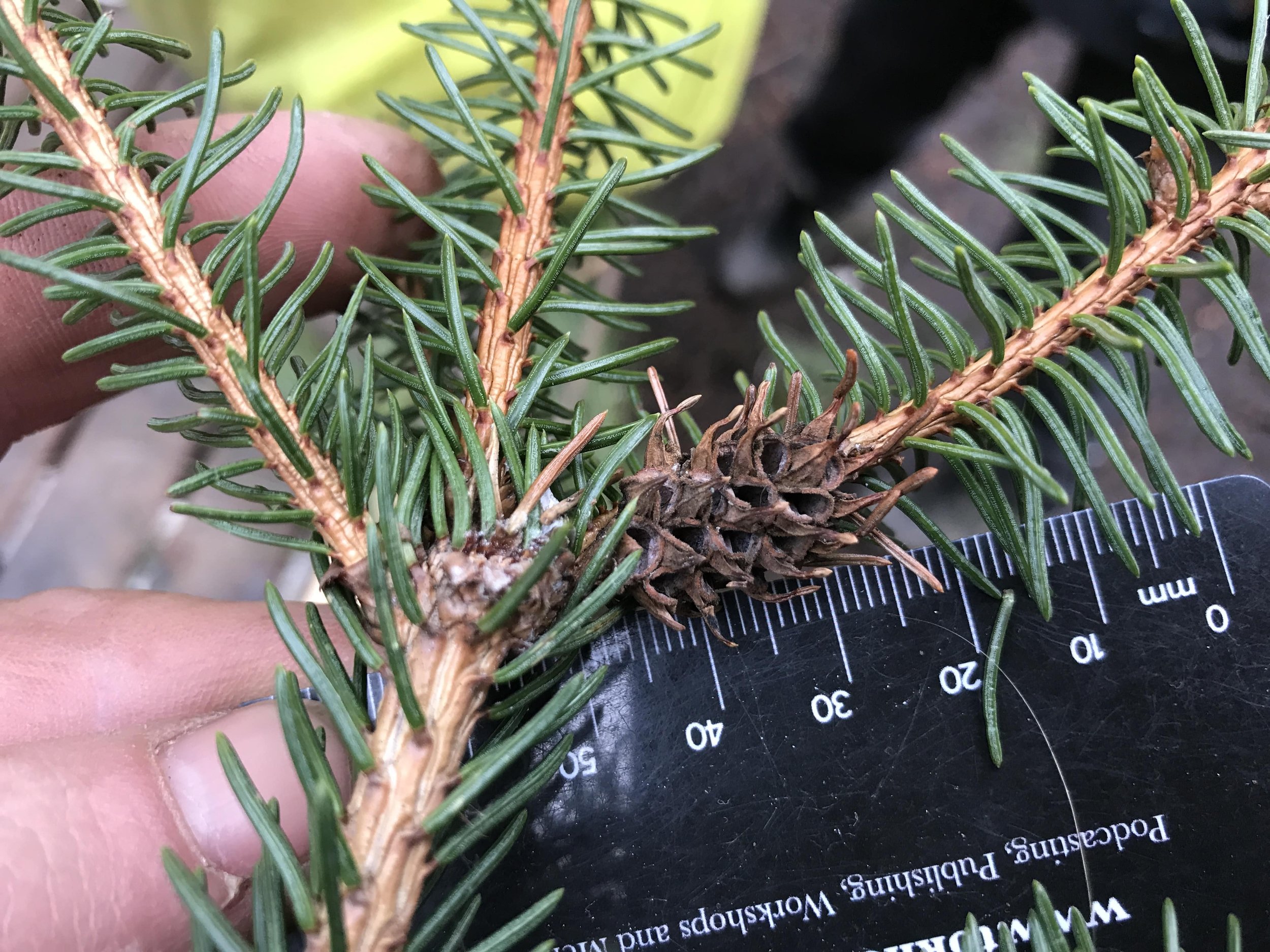
Spruce Pineapple Galls
For a few years I have come across a gall on Spruces all over the Eramosa River Valley. Most of the Spruces are Norway Spruces , but I have also found them on White Spruce. They were mysterious to me so I looked them up a couple of years ago and learned that they were called the Pineapple Spruce Gall, or Spruce Pineapple Gall, or Eastern Spruce Gall depending on who you’re asking, but that was where my knowledge ended. Recently, after coming across them again, I decided I needed to learn a little bit more about them.
